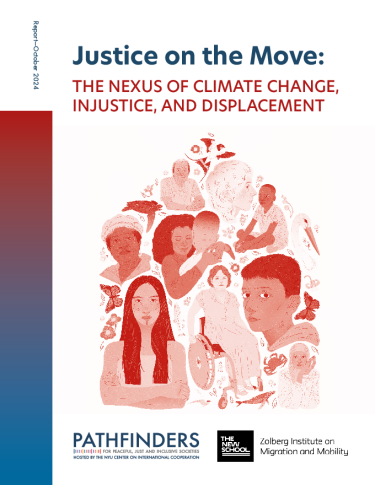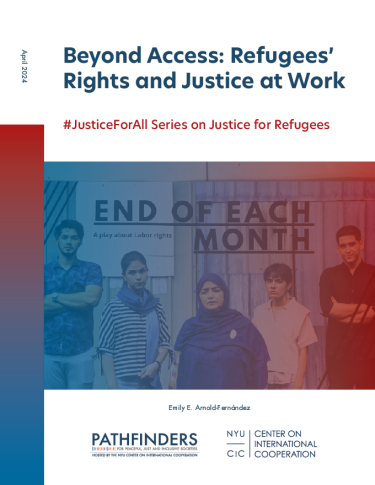Climate change is increasingly exacerbating displacement and justice challenges across the globe. As climate injustice intensifies, the risk of displacement grows, especially for vulnerable populations. This displacement often leads to a cascade of new justice challenges, including the loss of property, lack of access to services, and increased vulnerability to exploitation.
Current climate justice dialogues frequently focus on macro-level concerns like North-South reparations and state-level inequities, which, while important, can overlook the day-to-day injustices experienced by those in climate-impacted communities. Climate displacement calls for us to take a people-centered approach to the climate justice arena.
In this paper, the author:
- Explores the intersection of climate change, justice, and displacement, shedding light on the ways in which the global justice gap can sit at the intersection of climate-related events and human mobility.
- Highlights that climate change is exacerbating existing inequalities and creating new challenges that often force individuals and communities to relocate.
- Emphasizes that current resources and legal frameworks are inadequate to address the justice needs of climate-displaced populations, leaving many without proper support.
- Argues humanitarian and justice actors have a critical role to play in addressing these issues by supporting people-centered resilience and adaptation strategies that protect individuals’ rights amidst the climate crisis.
- Emphasizes the need for proactive justice strategies to prevent and mitigate the harms of displacement, support resilience and adaptation, and ensure the protection of rights throughout the migration process, advocating for a shift towards anticipatory action, holistic access to justice services, and the inclusion of migration considerations in national policies.
- Stresses the importance of community-led efforts and just transitions, ensuring that those most affected by climate change have a voice in policy development.
By bridging the gaps between climate justice, displacement, and legal support, this paper argues for more effective, equitable solutions rooted in people-centered justice that address the root causes of displacement and support climate-impacted communities in their fight for justice.
This paper is a publication of the Justice for Displaced Populations (J4DP) initiative, founded at CIC in 2022 as a partnership between the Pathfinders for Justice and Humanitarian Crises programs. In 2024, a partnership was formed between Pathfinders for Justice at CIC and The New School’s Zolberg Institute on Migration and Mobility to continue this work.


